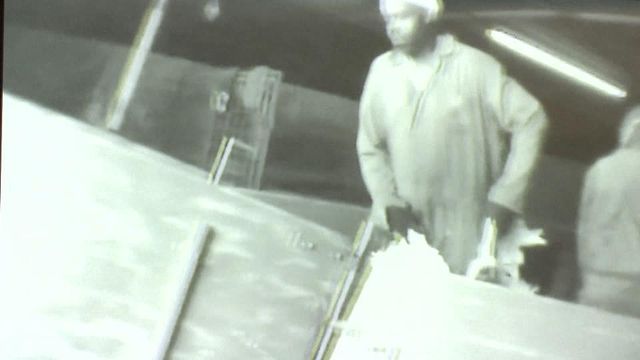Bill could curb certain undercover investigations
Activists could no longer land jobs with companies just so they can conduct hidden-camera investigations under a bill that cleared the House Judiciary II Committee.
Posted — UpdatedThe committee voted to send House Bill 405, which sponsors have labeled the Property Protection Act, to the full House, setting aside the objections from media organizations and animal rights groups.
"This affects the one person who's employed, and he's really working for somebody else," said Rep. John Szoka, R-Cumberland. "His employment is a fiction. He says, 'I want to work for this company,' but it's a fiction because he's working for somebody else working on a new story or something else."
Under the bill, employers would be able sue such employees for damages.
Szoka and the other bill sponsors noted that the bill, which allows farmers to recover damages, would apply to more than just farmers. He cited the example of members of an organized crime group getting a job in a warehouse or with a retailer in order to cause mischief.
But opponents of the bill said the cases it most clearly applies to are undercover investigations of poultry farms, meat processors and the like.
"Consumers have a right to know how their food is produced," said Chloe Waterman, a lobbyist for the American Society for the Prevention of Cruelty to Animals.
Shoppers, she said, "have a right to know whether that food is being produced in accordance with the law this legislature has passed. They have a right to know that food is being produced in accordance with what they consider to be humane (conditions), what they consider to be safe to feed their family and feed their children. That is above all for us."
Waterman pointed to a California case where an undercover investigation led to a meat recall. In 2011, undercover video from a Butterball plant in Hoke County led to convictions for animal cruelty.
During the committee meeting, Mark Prak, a lawyer representing the North Carolina Press Association and North Carolina Association of Broadcasters, said the bill could make it a crime for some journalists to do their jobs.
"It puts statutory steroids into an area that is already covered under common law," Prak said, warning that journalists could find themselves in court merely for talking to witnesses about acts that happened on private property.
Committee members dismissed that concern, saying that the measure covers only people who physically entered a business location under a variety of false pretenses.
"This is not the 'ag-gag' bill," said Rep. Rick Glazier, D-Cumberland, referring to a more sweeping measure designed to thwart investigation of any sort of farming or meat processing operation.
Prak argued that specific citations to the First Amendment to the Constitution protecting free-speech rights ought to be added to the bill. Glazier and the bill sponsors argued all laws have to comply with the Constitution.
Summing up the measure, Rep. Chuck McGrady, R-Henderson, said that business owners have a right to be protected from individuals infiltrating their businesses under false pretenses.
"Truthful information doesn't trump property rights," McGrady said.
Related Topics
• Credits
Copyright 2024 by Capitol Broadcasting Company. All rights reserved. This material may not be published, broadcast, rewritten or redistributed.






